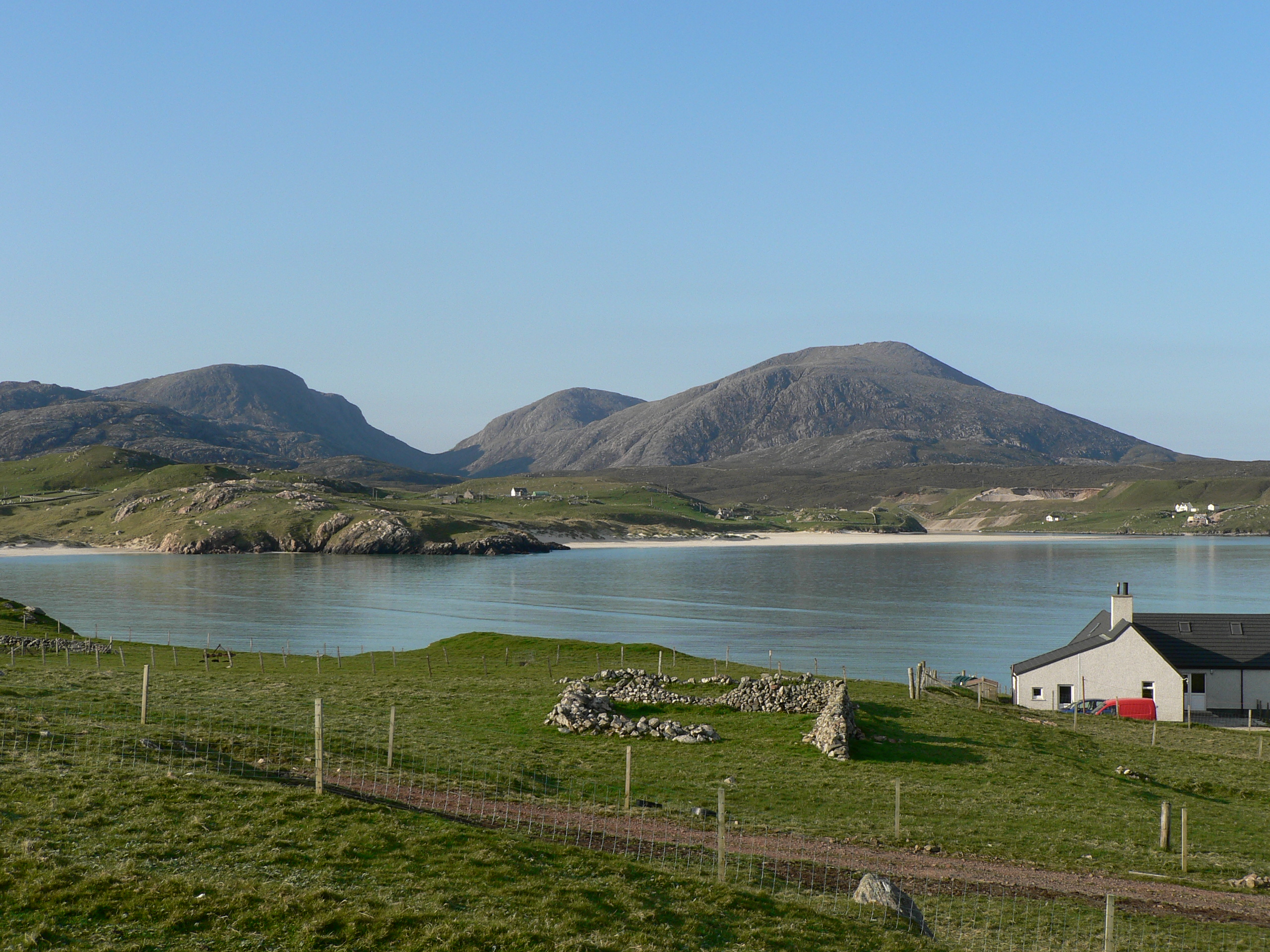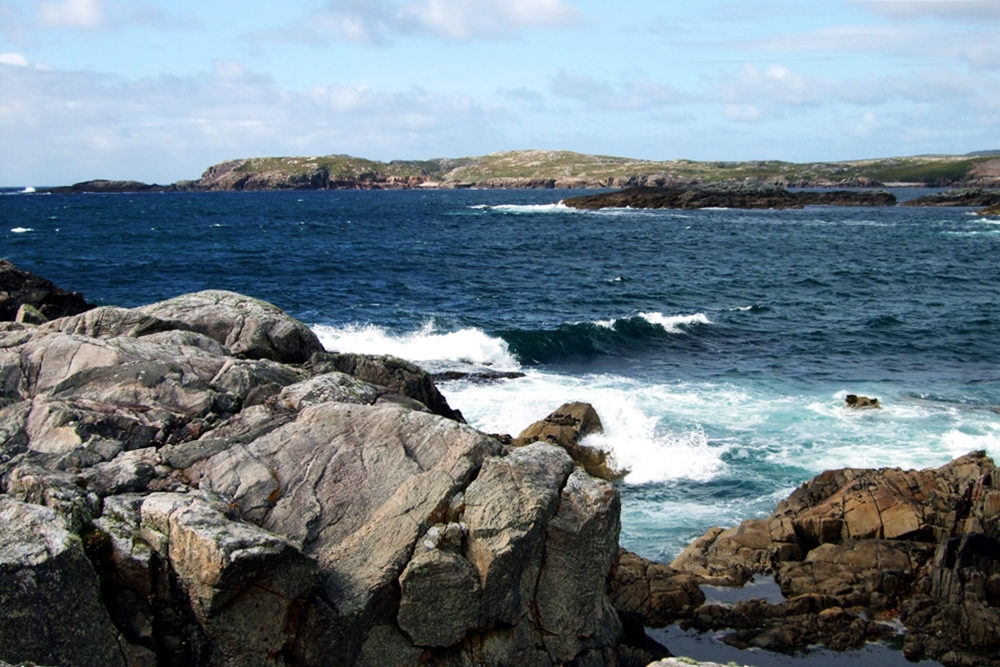Long an Iaruinn: the Ship of Iron
Dolly Doctor, in Tales and Traditions, tells of the wreck of a ship at Carnish in 1775. In the picture Sgeir an Iaruinn is the small island in the middle of the picture, with Shielibhig in the distance on the far left.
All night the people round Uig Bay had listened to the cries of woe and frightful screaming from the crew of the ship gone aground, as piece after piece broke away from the ship and the crew were being washed overboard; but they could do nothing to help them, for no boat could live in those awful waves and the night was inky black. She was a big ship, and had come into Camas Uig the evening before, seeking shelter in the lea of Sgeir Sheilibhig, putting out two anchors for futher safety. The wind began to get stronger as night came on, and by midnight it was blowing a howling gale right into Uig Bay. She began to drag the two anchors until she scudded before it, gaining momentum all the time, until she struck on a sunken bogha with such for that she gave off a loud clang as of metal being struck, so that all the houses in Carnish and Crowlista heard the noise. This was a mortal blow for it ripped part of her timbers off, then she scurried with renewed force onto the sharp fangs of the skerry at Carnish Point, where the mighty billows kept on tearing her asunder, but she was well out from the land and no human being could get to her on such a night of doom.


